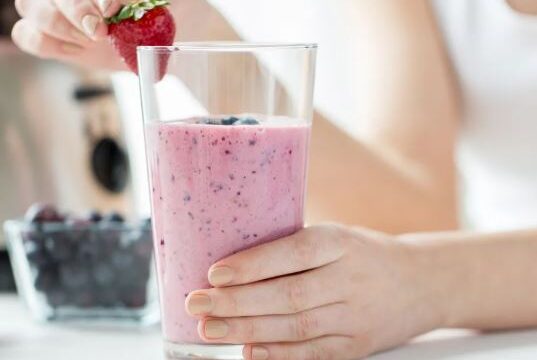In recent years, the connection between the gut and the brain has gained more attention in both science and everyday wellness discussions. People have long known that what we eat affects how we feel physically, but now research suggests that food may also play an important role in how we feel emotionally. A key part of this conversation is probiotics, the beneficial bacteria that live in the digestive system and are often found in foods like yogurt, kefir, sauerkraut, and certain supplements. While most people associate probiotics with digestion, their influence may extend much further, including shaping mood and outlook on life.
The human gut is home to trillions of microorganisms, often referred to as the gut microbiome. These tiny organisms help with digestion, nutrient absorption, and even the production of certain vitamins. But beyond these physical functions, scientists have discovered that the gut and the brain are in constant communication through what is known as the gut-brain axis. This system involves chemical messengers, nerves, and immune signals that connect the digestive system with the central nervous system. Because of this close connection, changes in the gut environment can influence mental clarity, stress response, and overall emotional balance.
Probiotics may help support this communication in positive ways. For example, certain strains of probiotics are believed to produce neurotransmitters such as serotonin and gamma-aminobutyric acid, which are linked to mood regulation. Serotonin is often associated with feelings of well-being, and while most of it is produced in the gut, it also has important effects in the brain. When probiotics support healthy gut bacteria, they may indirectly encourage the production of these beneficial chemicals, which can contribute to a more stable and positive mental outlook.
Another way probiotics may influence mood is through the reduction of inflammation. Chronic low-grade inflammation has been studied for its connection to both physical and emotional health challenges. Since probiotics can help strengthen the gut barrier and support immune balance, they may help reduce excess inflammation in the body. In turn, this creates a more balanced internal environment that may support clearer thinking and improved resilience during stressful times.
Digestive comfort is another factor that links probiotics to mental well-being. Anyone who has experienced bloating, irregular digestion, or stomach discomfort knows that these issues can affect concentration and mood. When probiotics support smoother digestion, people often feel more comfortable and relaxed, which naturally contributes to a more positive mindset. In this way, probiotics may indirectly boost emotional health by reducing the physical distractions that come from an imbalanced gut.
Lifestyle factors also play a role in how probiotics affect mental outlook. For example, people who regularly eat probiotic-rich foods such as yogurt, kimchi, miso, and kombucha are often also consuming more fiber, fruits, and vegetables, which further nourish healthy gut bacteria. Fiber acts as food for probiotics, known as prebiotics, and when consumed together they create a more robust microbiome. A thriving gut environment supports smoother communication with the brain and can make it easier to handle daily challenges with calmness and energy.
Scientific studies continue to explore this connection, and while probiotics are not a magic solution, the evidence suggests they can be a valuable part of a balanced approach to mental wellness. Clinical trials have shown that individuals who regularly consume probiotics sometimes report lower stress levels and a more positive outlook compared to those who do not. While results vary depending on the strains used, these findings highlight the potential of probiotics as part of a supportive lifestyle.
It is important to note that not all probiotics are the same. Different strains have different effects, and the benefits for mood may depend on the specific types included in foods or supplements. For example, some Lactobacillus and Bifidobacterium strains have been studied more closely for their potential impact on emotional balance. Choosing a diverse range of probiotic sources rather than relying on one product may help maximize the chances of supporting both gut health and mental outlook.
The timing and consistency of probiotic intake also matter. Probiotics are most effective when they become part of a regular routine rather than an occasional choice. Whether through daily servings of yogurt, fermented vegetables, or a supplement recommended by a healthcare professional, steady intake helps maintain a healthy balance in the gut. Over time, this consistency can make a noticeable difference in both digestion and mental resilience.
It is also valuable to remember that probiotics work best as part of an overall healthy lifestyle. Adequate sleep, regular physical activity, balanced meals, and stress management techniques all contribute to emotional well-being. Probiotics may enhance these efforts by creating a supportive foundation within the gut. For example, someone who practices meditation or goes for daily walks may find these activities feel even more refreshing when their digestion is smooth and their energy is steady, thanks in part to probiotics.
The cultural traditions around probiotic-rich foods also show how these foods have long been part of human life. Across the world, communities have practiced fermentation for centuries, not only for preservation but also for taste and health. From Japanese miso soup to German sauerkraut and Korean kimchi, these foods reflect a shared understanding that fermented foods can bring both flavor and vitality. Today, science is beginning to explain why these traditions have endured and how they may contribute to emotional as well as physical strength.
For people in the United States looking to add more probiotics into their diet, there are many accessible options. Supermarkets now carry a wide variety of yogurts, kefirs, kombuchas, and fermented vegetables, often in flavors that appeal to different preferences. For those who enjoy cooking at home, making fermented foods can also be a rewarding way to incorporate probiotics. Even small additions, like enjoying a spoonful of kimchi alongside a meal or drinking a glass of kefir, can make a difference when done regularly.
The connection between probiotics and mental outlook is still an evolving field of study, but the current evidence offers promising insights. While probiotics are not a replacement for professional care when needed, they can be a valuable part of a balanced lifestyle that supports both the body and the mind. By fostering a healthier gut environment, probiotics help set the stage for better communication along the gut-brain axis, leading to clearer thinking, steadier moods, and a more positive outlook on daily life.
As awareness grows, more people are discovering that caring for the gut is not only about digestion but also about emotional balance. By embracing foods and practices that support healthy bacteria, individuals can take a simple yet meaningful step toward improving their overall sense of well-being. Probiotics remind us that health is interconnected and that nurturing the small things within us can have a big impact on how we feel, think, and live each day.






